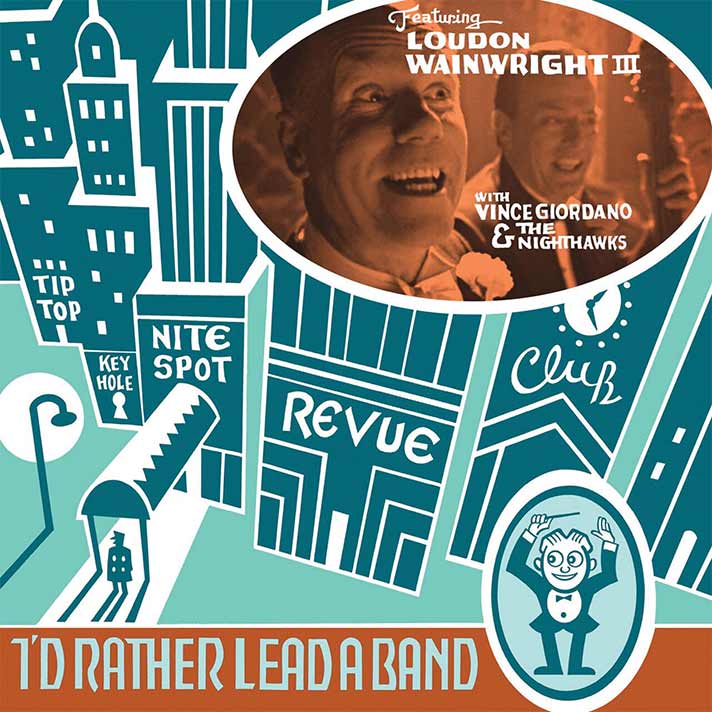The Unfettered Critic – February 2021
One evening in 1972, a folk singer ran over a skunk. When he got home, he spent fifteen minutes jotting down a tune about the accident, calling it, Dead Skunk in the Middle of the Road. The singer’s name was Loudon Wainwright III.
The early ‘70s was a musically transitional time. The Beatles had broken up. Led Zeppelin was introducing a harder sound. The press starting calling the genre “rock” rather than “rock ‘n’ roll.” Change was in the air and in the ear, yet there was more than rock to draw fans.
Wainwright recorded his ditty about the dead skunk. It was not his first recording, but it caught the attention of radio stations across the country, which lifted the singer into the limelight, and, remarkably, sparked the beginning of a musical dynasty.
Really.
On the road, Wainwright and his wife, Kate McGarrigle, a songwriter who shared compositions with her sister Anna, met more established artists. Kate and Anna began turning out songs such as Heart like a Wheel for singer Linda Ronstadt.
As for Loudon and Kate, they begat two children, Rufus and Martha. Loudon recorded songs about his kids, including a silly number about Rufus breastfeeding. (We’ll skip the lyrics to avoid shocking our readers.) The tune drew enough attention that the name “Rufus” stuck in the minds of amused fans.
Down the road, Kate and Loudon separated. Loudon met a trio of singing sisters, The Roches, and fell in love with the youngest, Suzzy (rhymes with buzzy). Before long the couple produced a daughter, Lucy.
And thus, the principals in this tale were established.
Loudon combined singing with acting, initially joining the fledgling TV show M.A.S.H. as Captain Spalding, “the singing surgeon.” Over the decades, while he continued releasing albums, he appeared in movies such as The Aviator, Big Fish, The 40-Year-Old Virgin, and the TV show Parks and Recreation. And he wrote the music for, as well as acted in, the movie Knocked Up.
Young Rufus, meanwhile, studied piano and began singing, influenced by his favorite singers: Edith Piaf, Al Jolson, and Judy Garland. With his four-octave range, his musical career was a given. In 1997, DreamWorks Records invited him to cut an album—for which he wrote an astounding fifty-six songs. On the strength of that body of work, Rolling Stone named the singer “Best New Artist.” Rufus toured with his mother and his aunt, Kate and Anna McGarrigle. On his own, he performed two sold-out nights at Carnegie Hall, honoring the classic Judy Garland album that the diva had recorded live there in 1961, and went on to perform the show at the London Palladium and the Hollywood Bowl. In 2008, he composed his first opera, Prima Donna, and in 2017, his second, Hadrian. For his ninth studio album, he set Shakespeare’s sonnets to song. As for his current album, Unfollow the Rules, your humble unfettered critics declare it the best tonic to drag you out of the COVID doldrums.
Rufus’s sister Martha today tours and records with Rufus as a full-time partner, as well as on her own. And many of you may recall his half-sister, Lucy Wainwright Roche, from an enchanting evening of music and comedy that enthralled us on Jacksonville’s own Britt stage several seasons ago.
And, by the way, the founder of this dynasty, Loudon Wainwright III, recently released what we feel is perhaps his best work, an album titled, I’d Rather Lead a Band. We can’t bring ourselves to take it out of our CD player.
Not bad for a tale that started with a squished skunk!

 Paula and Terry identify as writers, with an ever-increasing number of published works to support the supposition. They live a primarily pastoral life in the enchanted town of Jacksonville.
Paula and Terry identify as writers, with an ever-increasing number of published works to support the supposition. They live a primarily pastoral life in the enchanted town of Jacksonville.